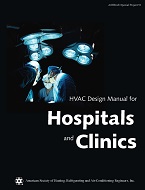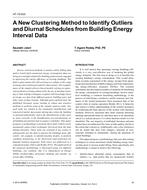Click here to purchase
Unintended airflow through building envelopes leads to an increased demand in heating and cooling energy. The most common way to measure air leakage of buildings is the blower door test, which quantifies the overall leakage rate of one room or a building. To reduce air leakage and associated energy loss in new and existing buildings, it is
necessary to identify leak locations and prioritize sealing of more substantial leaks. However, detection and quantification of individual leaks with smoke tracers or infrared thermography are challenging, time-consuming, and depend on the operator’s experience.
Acoustic methods have been identified to have the potential to localize and quantify individual leaks without the need for pressure or temperature differences. In this work, the acoustic beamforming method is proposed using a microphone array to detect leak locations and visualize them (acoustic camera). The objective of this investigation is to identify the potential of this technique for application to building envelopes. A pair of omnidirectional speakers is placed as a sound generator inside a room, and the microphone ring array with 48 microphones outside. As an experimental setup, cable ties are wedged in a window frame to simulate a damaged window gasket and to create reproducible leaks of different sizes at the same place. Overlay of an optical picture with the acoustic image obtained from beamforming enables the visualization of leaks of sound through the building envelope. All experiments were conducted using white noise with an analyzed frequency range of 1-25 kHz. The sound sources are evaluated at multiple third-octave bands within this frequency range, enabling a distinction between these leaks at different frequencies.
Citation: IAQ 2020: Indoor Environmental Quality
Product Details
- Published:
- 2021
- Number of Pages:
- 9
- File Size:
- 1 file
- Product Code(s):
- D-IAQ2020-C12
- Note:
- This product is unavailable in Belarus, Russia


